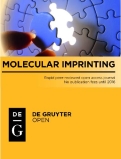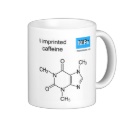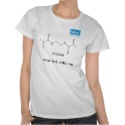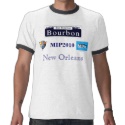|
|
Reference type: Journal
Authors: Martin-Esteban A, Tadeo JL
Article Title: Selective molecularly imprinted polymer obtained from a combinatorial library for the extraction of bisphenol A.
Publication date: 2006
Journal: Combinatorial Chemistry & High Throughput Screening
Volume: 9
Issue: (10)
Page numbers: 747-751.
DOI: 10.2174/138620706779026024
Alternative URL: https://www.eurekaselect.com/58331/article
Abstract: In the present work, an analytical methodology based on molecularly imprinted solid-phase extraction (MISPE) has been developed for the determination of bisphenol A (BPA) in environmental and food samples. In order to select the optimum material, a combinatorial library of molecularly imprinted polymers in small-scale (mini-MIPs) was prepared using BPA as template. Different monomers (methacrylic acid or 4-vinylpyridine), crosslinkers (ethylene glycol dimethacrylate or trimethylolpropane trimethacrylate) and porogens (methanol, acetonitrile or toluene) were used leading to 24 different polymerisation mixtures. After BPA removal, the ability of mini-MIPs to recognise BPA was evaluated by equilibrium rebinding-elution experiments. The copolymer of 4-vinylpyridine (4-VP) and trimethylolpropane trimethacrylate (TRIM) prepared in toluene showed the higher affinity for the template. Subsequently, a scaled-up version of the optimum polymer was prepared and used in the development of MISPE procedures for the extraction of BPA. The optimised MISPE protocols were successfully applied to the selective extraction of BPA from soils and aqueous canned peas samples. ¬ 2006 Bentham Science Publishers Ltd
Template and target information: bisphenol A, BPA
Author keywords: Aqueous canned foods, bisphenol A, combinatorial library, molecularly imprinted polymer, Soils
|


 I imprinted caffeine mug
I imprinted caffeine mug







 Cross-link T-shirt
Cross-link T-shirt







 MIP Workshop WorldTour Ringer T-shirt
MIP Workshop WorldTour Ringer T-shirt






